V is for Vulnerable is a little children’s book for grownups written by author and teacher Seth Godin. I have a copy of the book in my office, a reminder to me that two of the most essential elements of learning are the unguarded moment and the experience of discomfort, or of stepping from the known into the unknown. This book came to mind as I found myself thinking about my continued journey to become a leader who centers equity and belonging. More often than I care to admit, my path has been bumpy – with twists and curves that lead from one blind corner to another.
Our team at MNA (Montana Nonprofit Association) has had countless conversations about equity and justice in which I have found myself stepping into the unknown in ways that provoked anxiety, frustration or discomfort for me. At times, the conversations are easy. Other times the tension for me is real as we work through different perspectives and push ourselves to think and see differently. Being in the fray – being vulnerable – is risky.
When MNA began publishing “Building Belonging” last fall, I found myself wanting to include something akin to an “alert” to let readers know they might read words or phrases that feel uncomfortable, like white supremacy or systemic racism. I didn’t want to avoid those phrases as much as talk about what they mean. For those that experienced an uncomfortable emotional response – could they move through that and remain open to learning? In my experience, we all have phrases or micro-experiences that generate an emotional response. When that happens, we are momentarily taken off-course, like our system is hijacked. When this happens, it is almost impossible to learn or take in added information. A challenge is that every person’s experience is their own: unique and different from anyone else. What brings me discomfort might exhilarate another person, and conversely what provides comfort for me might be agitating for another person.
So how do we, as an association, deal with the reality that some of our members are going to embrace a phrase like “My personal pronouns are,” while for others, the phrase provokes discomfort, anxiety, annoyance or even anger? Whether my response to a certain phrase or a turn of words is positive or negative is not the question. Rather, the point is that when I am emotionally hijacked, I shut down either in small ways or large, and I will not take in added information regardless of how well it is presented. When we feel uncomfortable or even threatened, our natural inclination is to freeze, fight or flee. None of those are conducive to the openness and vulnerability needed for learning.
Fortunately, we do not have to simply react to new or uncomfortable concepts or experiences. Experiencing that moment of uncertainty or suddenly feeling defensive does not need to be the end of the story. Quite the opposite. It is an opportunity explore what is happening. Why am I suddenly uncomfortable? Am I truly unsafe, or do I just feel threatened? What is the risk I’m experiencing? And more important, in this moment am I going to be vulnerable or am I going to shut down?
In the instant when we notice a reaction and choose to explore it rather than simply reacting, we have the opportunity for learning and growth.
I want to offer three examples of phrases that I have found challenging for me or for others. These are just examples for the sake of practicing alternative responses, and they might not be relevant for you.
Equity
Reaction
- I am tired of hearing everyone talk about equity.
- Since when did everything get to be all about race?
More vulnerable responses:
- What do I really know about the experience of inequity?
- Why do I feel vaguely threatened and tense up when I hear this word?
White Supremacy
Reaction
- I’m not a skinhead and I would never associate with skin heads, so why are we even talking about this?
- I don’t see color and I’ve never seen color. All people are the same.
More vulnerable responses:
- When I use certain phrases or make assumptions, to what extent am I using definitions that are norms in my upbringing and culture and assuming they are the same for everyone else?
- Is the speaker or writer referring to me, specifically, or to a larger system that I’m an unwitting part of?
- I would like to learn more about this from a non-white perspective.
- What can I do to understand white supremacy?
Systemic Racism
Reaction:
- I’m not racist. This doesn’t apply to me.
- Why can’t people just get on with it? It doesn’t help to keep rehashing the past.
More vulnerable responses:
- What are tangible ways my family benefitted from being part of the racial majority back in the sixties? And how did that position us for the experiences of success we have today?
- In what ways Is our political system designed to preserve ways and thinking of the majority, even at the expense of others?
In the face of injustice nonprofit leaders often ask, “What can I do?” Noticing and exploring discomfort is something any one of us can do. We can start by responding with vulnerability and curiosity rather than letting our reaction be the final word. In this way we create the conditions for learning that allow us to know better, so that we can do better. That simply cannot be a bad thing.

Author: Liz Moore
Liz Moore, MNM, has been the Executive Director for Montana Nonprofit Association (MNA) since 2011. During that time she has lobbied and advocated extensively at the state and federal levels on behalf of Montana’s nonprofit sector. In addition to working with MNA’s Public Policy Council to lead MNA’s policy efforts, she serves on the Board of the National Council of Nonprofits. In that role she serves as the chair of the National Council’s Public Policy Committee. Liz is also an adjunct professor for the University of Montana, teaching Nonprofit Policy and Advocacy in the Masters of Public Administration Program.
Questions & Feedback
Have a question or feedback about this blog or MNA’s DEI efforts? We welcome all comments, suggestions, questions, and feedback, and look forward to hearing from you. Please email [email protected]. Thank you.

